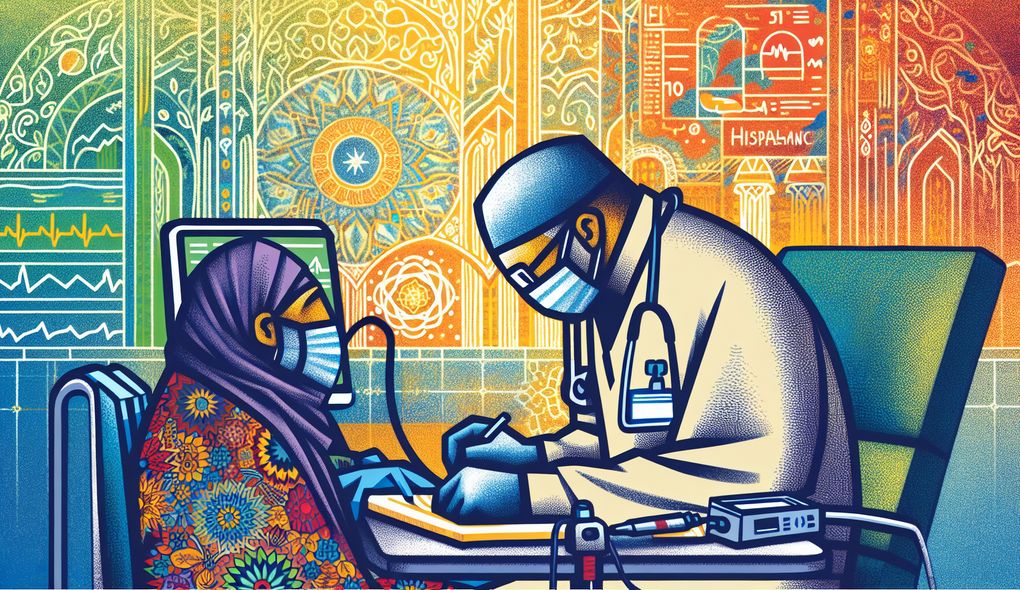Tell me about a time when you had to manage conflict or resolve disagreements within the healthcare team in a critical care setting.
JUNIOR LEVEL

Sample answer to the question:
In my previous role as a Critical Care Nurse Practitioner, I had to manage conflict within the healthcare team in a critical care setting. One situation that stands out is when there was a disagreement between the attending physician and the nursing staff regarding the treatment plan for a critically ill patient. The physician believed that the patient needed a certain procedure, while the nursing staff felt that it was too risky given the patient's unstable condition. To resolve the conflict, I facilitated a meeting with the physician and the nursing staff. We discussed the patient's condition, reviewed the available research, and shared our concerns and perspectives. Through open and respectful communication, we were able to reach a consensus and developed a modified treatment plan that took into consideration both the physician's expertise and the nursing staff's concerns. This experience taught me the importance of effective communication and collaboration in managing conflicts within a healthcare team.
Here is a more solid answer:
In my previous role as a Critical Care Nurse Practitioner, I encountered a conflict within the healthcare team regarding a critically ill patient's treatment plan. The attending physician recommended a certain procedure, but the nursing staff expressed concerns about its risks. Recognizing the importance of resolving the conflict promptly, I scheduled a meeting with the physician, nursing staff, and other relevant team members. During the meeting, I facilitated an open discussion where everyone had the opportunity to express their perspectives and concerns. I actively listened to each team member and asked clarifying questions to ensure clear communication. It became evident that both the physician's expertise and the nursing staff's concerns were valid. By acknowledging the shared goal of patient safety and the need to collaborate, we collectively developed a modified treatment plan that incorporated the physician's expertise while addressing the nursing staff's concerns. This incident taught me the significance of effective communication, active listening, and collaboration in managing conflicts within the healthcare team, especially in high-pressure situations.
Why is this a more solid answer?
The solid answer provides a more comprehensive example of conflict resolution within a healthcare team in a critical care setting. It includes specific details about the conflict, the candidate's actions in facilitating a resolution, and how the conflict was resolved through collaboration. Additionally, the answer addresses all the evaluation areas mentioned in the job description and highlights the candidate's communication, interpersonal, and ability to work effectively in high-pressure situations. However, the answer can still be improved by providing more specific details about the impact of the conflict resolution on patient outcomes and the candidate's growth from the experience.
An example of a exceptional answer:
As a Critical Care Nurse Practitioner, conflict resolution within the healthcare team is a crucial skill. In one critical care setting, there was conflict regarding the treatment plan for a critically ill patient. The attending physician had recommended an invasive procedure, but the nursing staff was concerned about its risks and impact on the patient's condition. Recognizing the urgency of the situation, I took immediate action to address the conflict. First, I gathered all relevant team members, including the physician, nursing staff, respiratory therapist, and social worker. I facilitated a comprehensive discussion that focused on understanding each individual's perspective, reviewing the available research evidence, and considering the patient's unique needs. To promote open communication, I established ground rules that encouraged active listening, empathy, and respectful dialogue. By actively listening and summarizing key points, I ensured that everyone felt acknowledged and heard. As a result, the team discovered a shared goal of optimizing patient outcomes. We collaboratively developed a modified treatment plan that addressed the nurse's concerns while acknowledging the physician's expertise. Throughout the process, I remained calm, composed, and emotionally intelligent, ensuring that all team members felt valued and included. This conflict resolution experience strengthened the trust and cohesion within the healthcare team, leading to improved patient care and outcomes. I also personally grew from the experience, enhancing my critical thinking, problem-solving, and leadership skills.
Why is this an exceptional answer?
The exceptional answer provides a comprehensive and detailed example of conflict resolution within a healthcare team in a critical care setting. It includes specific actions taken by the candidate to address the conflict, such as gathering all relevant team members and establishing ground rules for communication. The answer also emphasizes the candidate's calmness, emotional intelligence, and leadership skills in facilitating the resolution. Additionally, the answer highlights the impact of the conflict resolution on patient care and outcomes, as well as the candidate's personal growth from the experience. The exceptional answer fully addresses all the evaluation areas mentioned in the job description and provides a strong demonstration of the candidate's abilities and qualities.
How to prepare for this question:
- Reflect on past experiences where you have encountered conflict within a healthcare team in a critical care setting. Consider situations where you successfully resolved the conflict and those where you faced challenges.
- Think about the strategies and approaches you used in managing conflict. Did you involve all relevant team members? How did you promote open communication and collaboration?
- Consider the impact of conflict resolution on patient care and outcomes. Did the resolution lead to improved patient outcomes or enhanced teamwork?
- Practice describing the conflict resolution process in a clear and concise manner. Focus on highlighting your communication, interpersonal, and problem-solving skills.
- Be prepared to provide specific examples of how you have effectively managed conflicts in high-pressure situations.
What are interviewers evaluating with this question?
- Communication skills
- Interpersonal skills
- Ability to work effectively in high pressure situations

